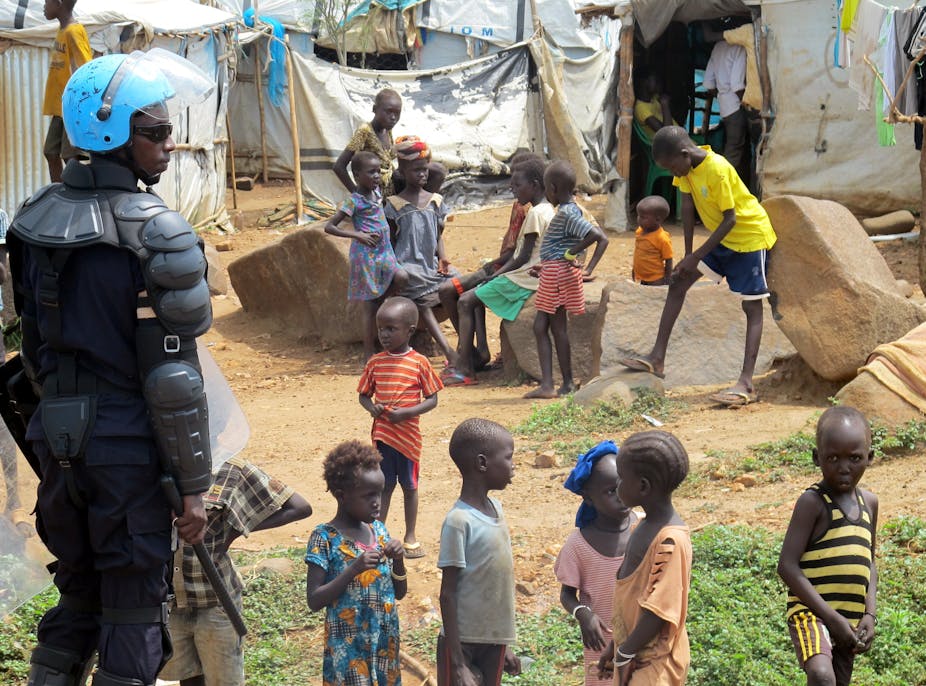If a United Nations official in New York raped an American child, there would be hell to pay. Similarly, if a UN official in Geneva raped a Swiss child, there would be an outcry.
So why is it that when a United Nations official or peacekeeper rapes an African child, the organisation fails to ensure that perpetrators are prosecuted?
This a question that the world body has been avoiding for years. Only recently its top officials acknowledged that the UN has a very serious sexual violence problem.
Earlier this year UN Secretary General Antonio Guterres confirmed that UN peacekeepers and civilian staff perpetrated 145 cases of sexual exploitation and abuse involving 311 victims in 2016 alone. That is more than two victims for each case on average.
Many of the victims, by the UN’s own admission, are children. And while the numbers are huge they are likely to be the tip of the iceberg because they only represent the crimes that have been reported. More than that, these numbers are only representative of sexual crimes committed within the organisation’s peacekeeping forces.
The problem is so bad that the UN keeps an updated list of accusations against peacekeepers on a website. So far this year 32 reported cases of sexual violence have been made against peacekeeping staff.
Long-standing affair
The 2016-2017 figures are only a small portion of the sex and child rape crimes committed by UN staff and peacekeepers over at least the last 20 years. The figures don’t include the UN sex scandals in the Bosnian War dramatised in the 2010 film Whistleblower nor the long running “food for sex” scandals of the early 2000s. These involved UN peacekeepers withholding food from refugees and displaced families until they agreed to the soldiers access to their children for sex.
A 2006 Save the Children report found “abuse at all age levels from 8 to 18”. Victims older than 12 years of age were identified as being “regularly involved in selling sex”.
The report went on to say that among the children interviewed “all of the respondents clearly stated that they felt that the scale of the problem affected over half of the girls in their locations”. This is a longstanding problem that dates back to the war in Bosnia.
According to the Code Blue Campaign, a campaign set up by Aids Free World to respond to the growing UN sexual abuse scandal, the Berbérati battalion of Congolese peacekeepers in the Central African Republic were the subject of serious concerns over a period of two years 2014 to 2016.
According to Code Blue, in June 2016 UN investigators knew that a group of children was living inside the army base, making them easy prey for a battalion that had been accused of multiple counts of child rape.
To put “multiple” into statistical context let’s use the UK as a point of reference. In the UK only one in seven rapes are reported. If one assumes that the same number of rapes are reported at the UN, then the 311 cases reported in 2016 would represent over 2100 victims in a single year.
That is a figure that should be hard to ignore. Yet the UN continues to use legal and sovereign immunity claims to prevent the prosecution of offenders.
This immunity rests on challengeable legal foundations and can be waived by the UN. But the world body chooses not to waive immunity, instead using this legal fiction to protect child rapists.
Not a single one of the accusations the UN lists on its website, and specifically those that involve the rape of children, has been prosecuted.
For at least 20 years the leadership of the UN has known about this sexual violence problem and for years it has failed to act. Indeed, former Secretary General Kofi Annan listed his failure to address the problem decisively as one of his regrets. His successor Ban Ki Moon has also acknowledged that not enough has been done.
Current Secretary General Guterres has proposed a four-part strategy to deal with the problem. This entails putting the rights and dignity of victims at the forefront of the UN’s efforts, working relentlessly to end impunity for those guilty of sexual abuse and exploitation, building a civil society network to support UN efforts, and raising worldwide awareness of the problem.
Releasing the 2016 UN annual review Guterres said,
I fully recognise that no magic wand exists to end the problem of sexual exploitation and abuse. Nevertheless, I believe that we can dramatically improve how the United Nations addresses this scourge.
Many people in power have known for decades of the sexual abuse by the UN and for some reason it continues. It is one of the reasons I quit the UN in 2009 calling out the abuse in my 2013 book “A Life Half Lived”.
Three years later, is the world just beginning to see the scale and scope of the problem? Are we today with the UN precisely where we were with the Catholic Church in the 1980s?
If we are, then as a global community, we need to do better than just “dramatically improve”. This scourge must be stopped now. Children in conflict zones need our help.

